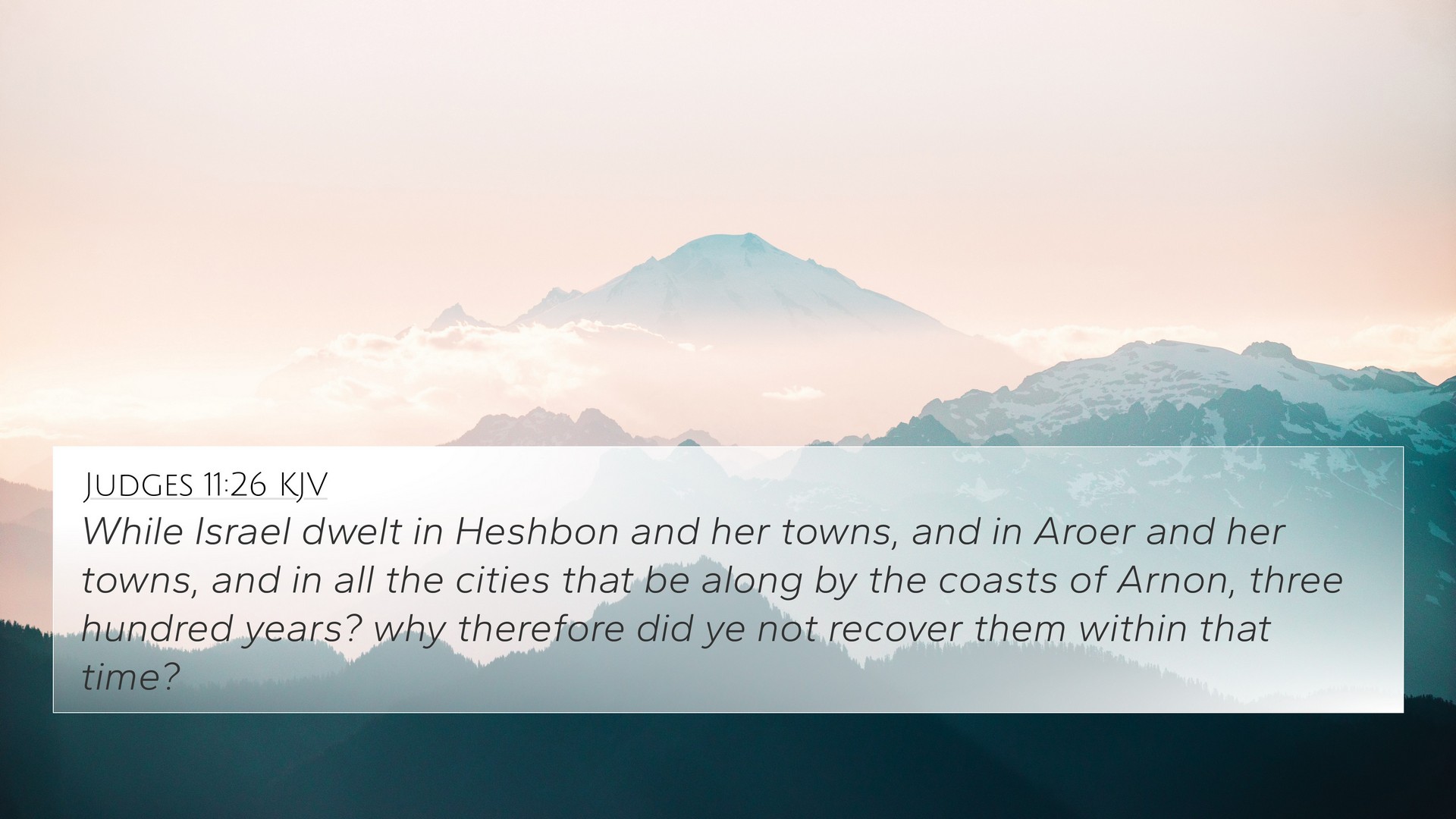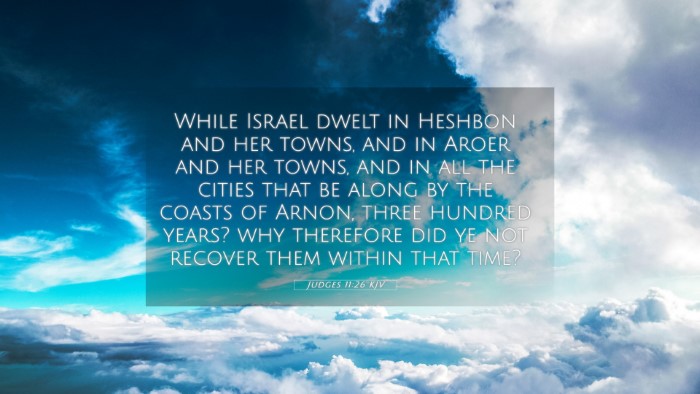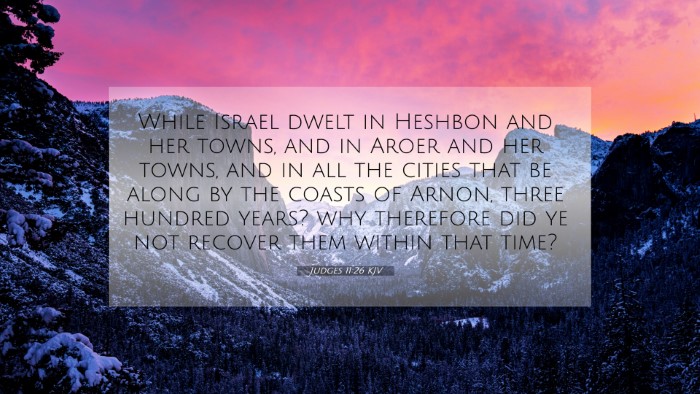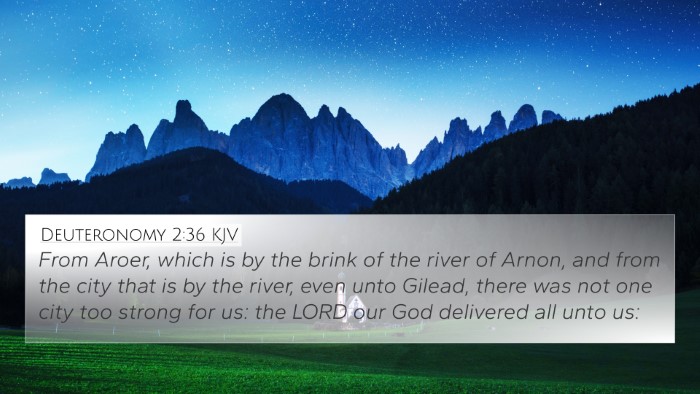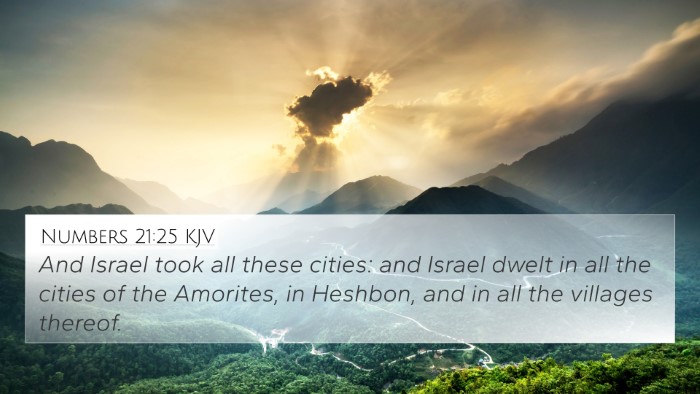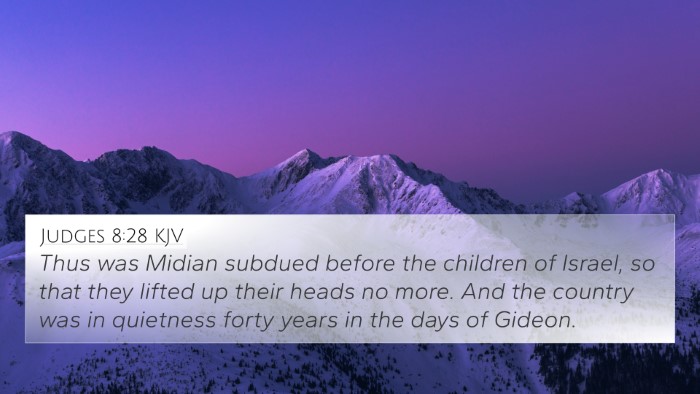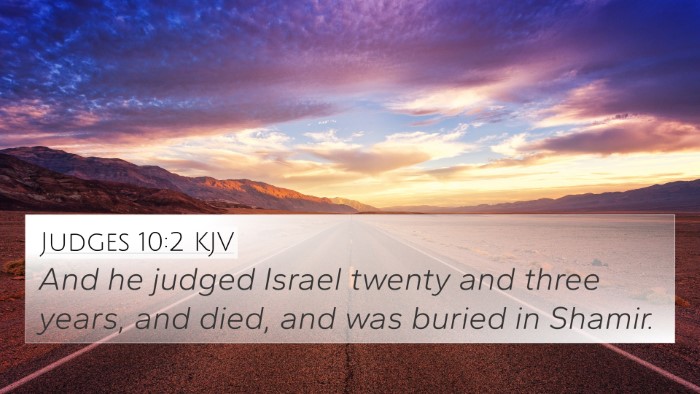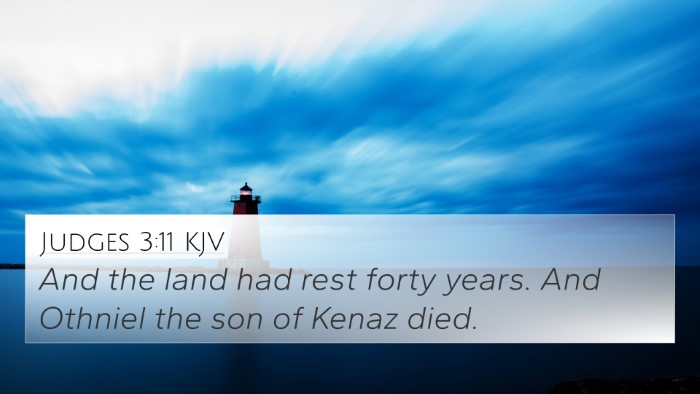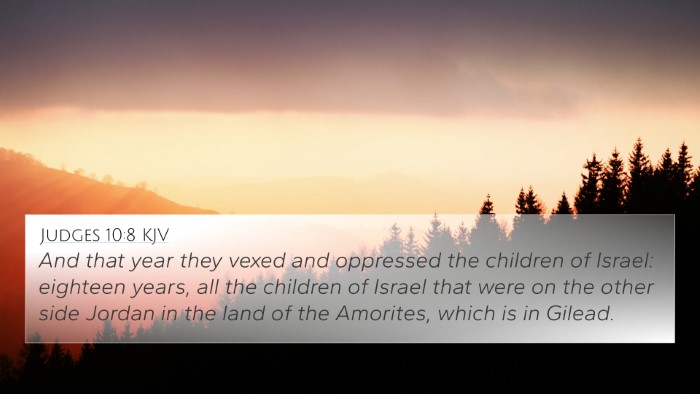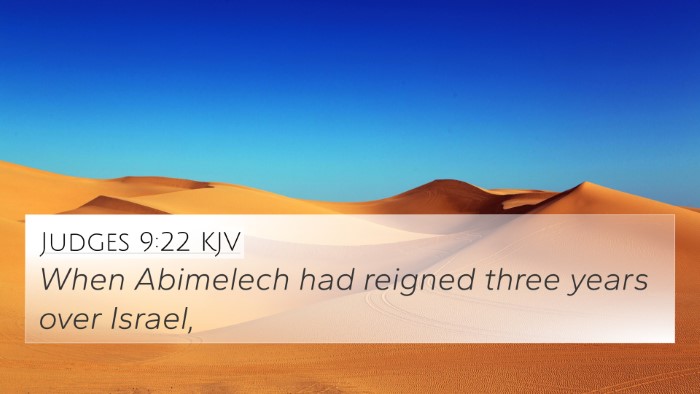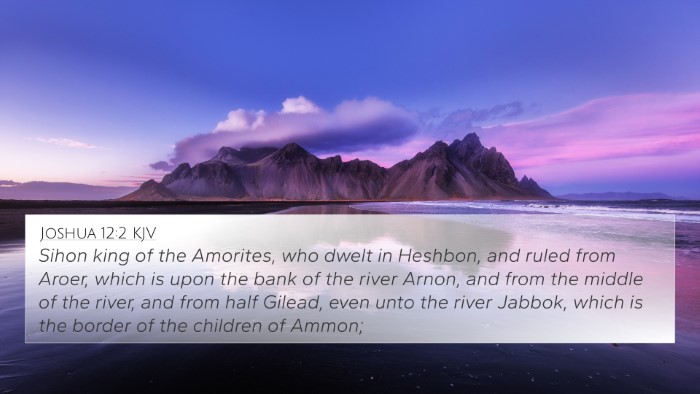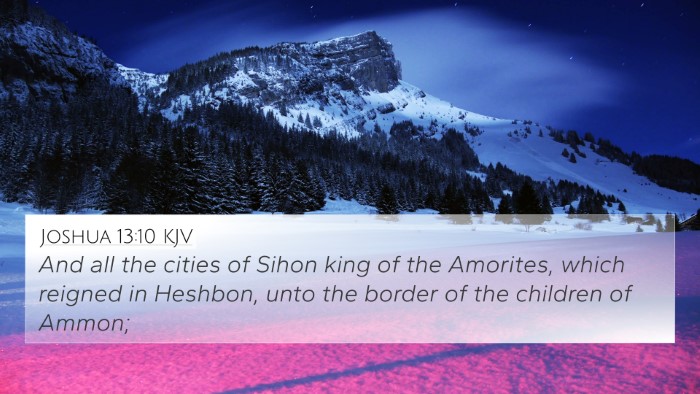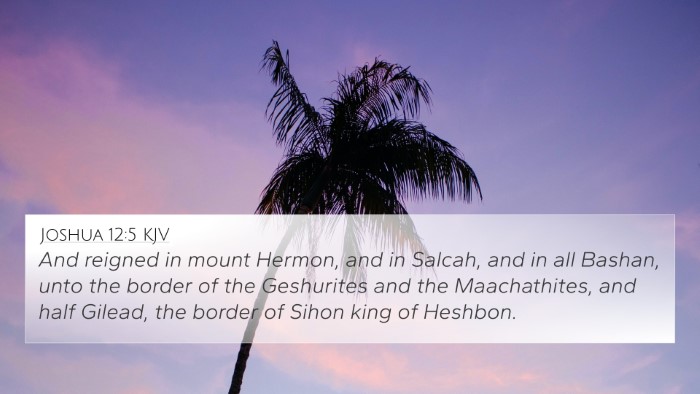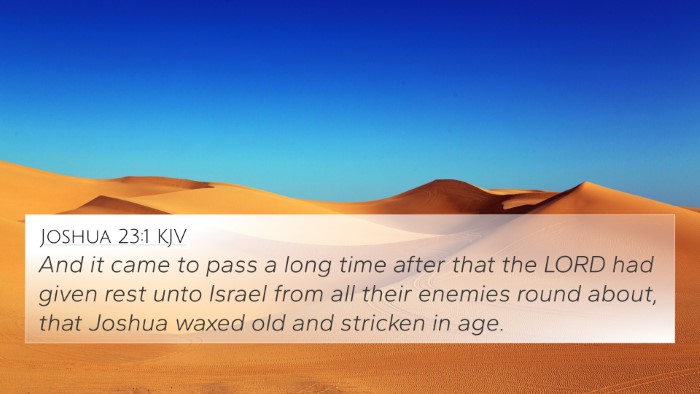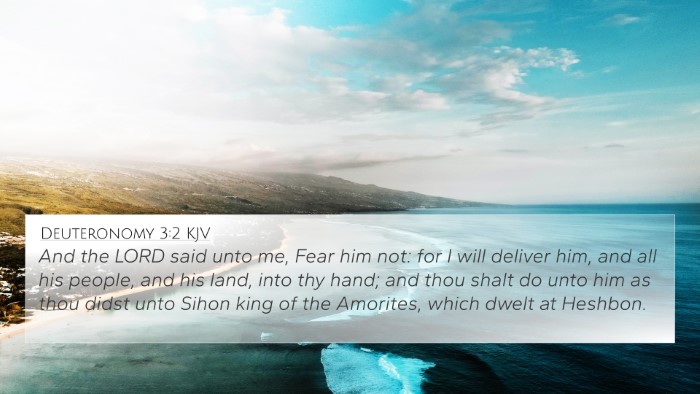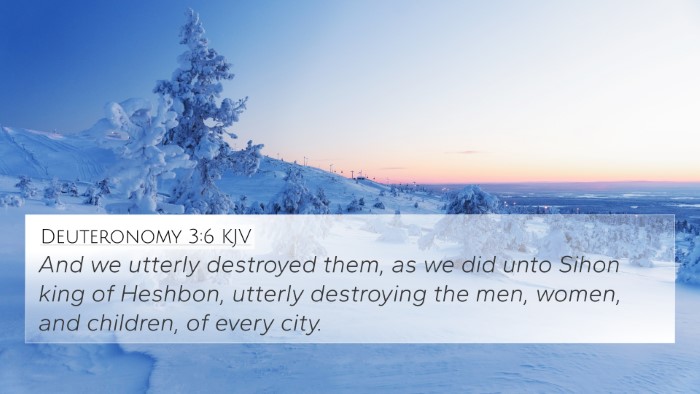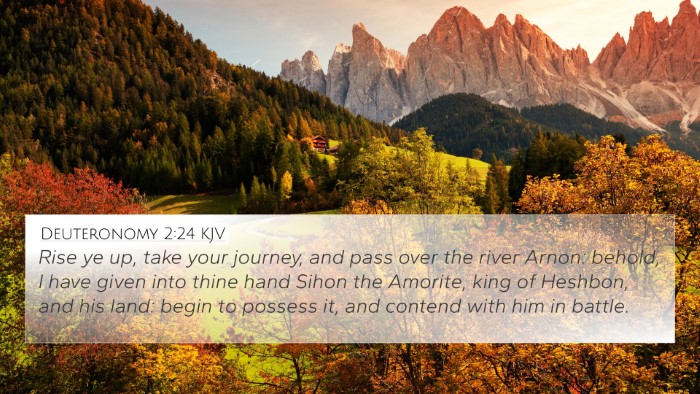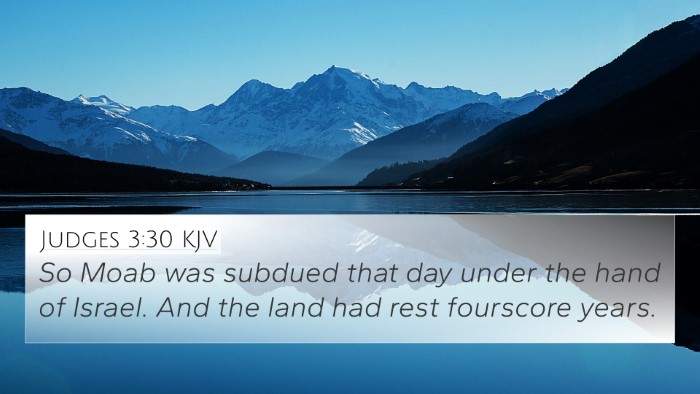Understanding Judges 11:26
Judges 11:26 states: "While Israel dwelt in Heshbon and her towns, and in Aroer and her towns, and in all the cities that be along by the coast of Arnon, three hundred years; why therefore did ye not recover them within that time?" This verse is spoken by Jephthah as he negotiates with the Ammonites regarding territorial claims.
Summary of Insights
This verse reflects Jephthah's appeal to historical context as he defends Israel’s right to the land against the Ammonite king's false claims. This encompasses theological, historical, and sociopolitical elements that require a nuanced understanding.
Theological Context
- Divine Justice: The verse illustrates God’s sovereignty over Israel’s lands, implying that the land was given to them by divine decree.
- Covenant Relationship: It emphasizes the importance of the covenant between God and Israel in claiming the land.
Historical Context
- Historical Claims: Jephthah refers to a period of 300 years where Israel had peacefully occupied the land without contest, suggesting that the Ammonites cannot claim it now.
- Precedent of Conduct: This highlights a common ancient practice of invoking historical rights during negotiations.
Social and Political Dynamics
- Conflict Resolution: Jephthah represents the diplomatic approach amidst conflict, showcasing leadership in addressing grievances through dialogue.
- Unity of Israel: This verse serves to strengthen the identity of Israel asserting their rights against external claims.
Cross-References Relevant to Judges 11:26
- Deuteronomy 2:24-25: God commands Israel to confront the nations surrounding them, legitimizing their land claims.
- Numbers 21:24: Highlights Israel's victory over Sihon and their possession of Heshbon.
- Joshua 13:15-27: Details the inheritance of the land, including the cities in the region of Arnon.
- 1 Samuel 12:9: Reminds Israel of their history and God’s deliverance, providing background for claims over lands.
- Psalm 44:1-3: Recalls God's deliverance and the people's possession of the land by His hand.
- Isaiah 11:12: Speaks of God gathering the outcasts of Israel, reaffirming His promise to His people regarding their land.
- Matthew 5:5: Relates to the inheritance theme, indicating that they will inherit the earth.
Insights from Public Domain Commentaries
Matthew Henry notes that Jephthah’s argument was not only about ownership but about a sovereign right that God had established. The emphasis is on faith in God's promises, which resonate deeply with the chosen people.
Albert Barnes emphasizes the point of territorial integrity based on history. Barnes explains how Jephthah strategically refers to the long occupancy of land to invalidate the Ammonite claims.
Adam Clarke draws attention to the significance of dialog and negotiation in leadership. Clarke elaborates further on the need for clear historical claims amidst disputes.
Comparative Analysis
The interplay between Jephthah's argument and other biblical narratives reveals a continuous theme of God establishing kingdoms. The connections between Judges 11:26 and other scriptural references foster a deeper understanding of Israel's divine right and heritage.
Thematic Connections
- God's Promises: Judges 11:26 aligns with the larger narrative of God promising lands to His people throughout the Bible.
- Leadership and Providence: Leadership reflected in taking authority and defending God's people resonates through different characters in the scripture.
- Historical Reliability: The importance of history in spiritual narrative connects the Old Testament with New Testament interpretations.
Conclusion
In conclusion, Judges 11:26 serves as a rich text illustrating the complex relationship between God, His people, and their rightful inheritance. Through cross-referencing Biblical texts and examining the historical backdrop presented by Jephthah, we gain profound insights into the nature of divine promise and human leadership.
